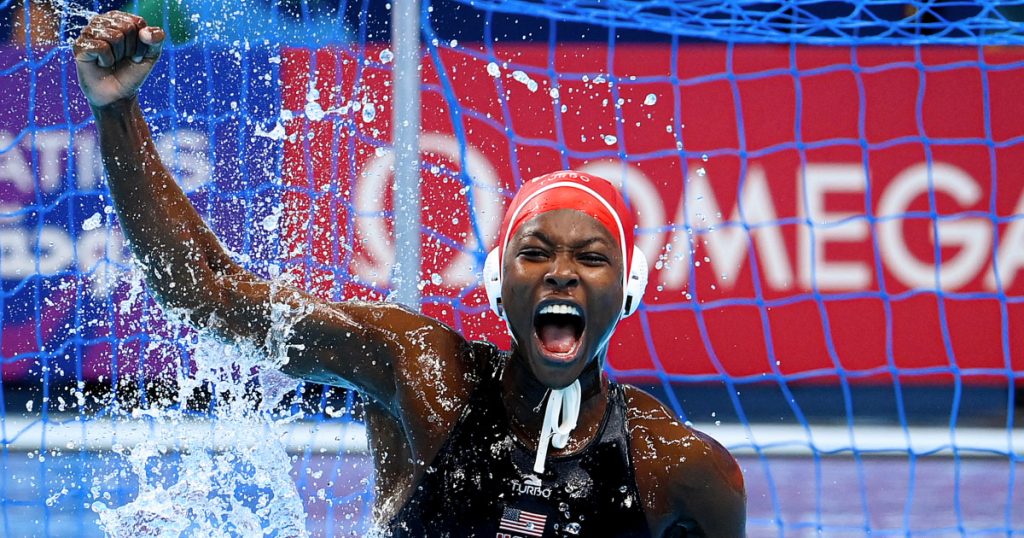Ashleigh Johnson and her siblings learned to swim as kids in Miami, primarily to ease their mother’s fears of them drowning in the family pool while she was at work. Their lessons led to a love for swimming and eventually to the unique sport of water polo. Johnson excelled as a goalkeeper, becoming an All-American at Princeton University and earning a spot on the U.S. Olympic team in 2016, becoming the first Black athlete to do so. She went on to win gold at both the Rio and Tokyo Olympics and is considered the best at her position in the world at 29 years old.
While Johnson is determined to win a third gold medal in Paris this summer, she also prioritizes having a positive impact on young people, especially in underserved communities. She feels a special obligation as a Black woman in the sport to be a role model for young Black and brown girls and boys who may be interested in swimming and water polo. Johnson’s passion for inspiring kids is evident in her work with local clinics and her interactions with children, where she shares her own experiences and offers words of encouragement.
Johnson’s mother, Donna Johnson, is proud of her daughter’s accomplishments but is most gratified by her personal growth and commitment to inspiring others. As a single mother, Donna was concerned about her children’s safety around water, which led them to water polo, a sport that has become integral to their lives. Johnson’s journey in a predominantly white sport has not been easy, as she often found herself as the only Black athlete in the pool. Despite the challenges, Johnson’s family foundation of worthiness and belonging instilled by her mother have helped her navigate the obstacles she faced.
Johnson’s time with the national team in California was tough, as she often felt isolated and struggled to fit into a swim culture that was foreign to her. Being the only Black athlete in competition presented another barrier for Johnson, but she ultimately found strength in her uniqueness and power to make the space more welcoming for future Black and brown athletes. She acknowledges the importance of representation and is committed to being a trailblazer for diversity and inclusion in the sport of water polo.
After the Olympics, Johnson is unsure of what the future holds for her but is considering starting a family, attending culinary school, or moving to another country to pursue a trade. Despite the uncertainty, she views life after water polo as a privilege and an opportunity to explore new paths. Johnson’s passion for inspiring others, especially young people from underserved communities, will continue to be a driving force in her post-athletic career as she seeks to make a positive impact on those around her. Johnson’s journey as a trailblazer in water polo serves as a beacon of hope and inspiration for future generations of Black athletes in the sport.















